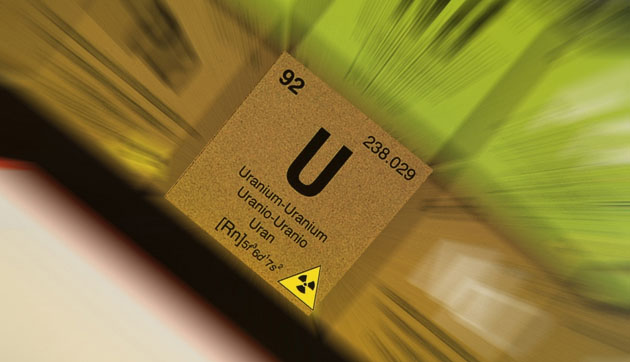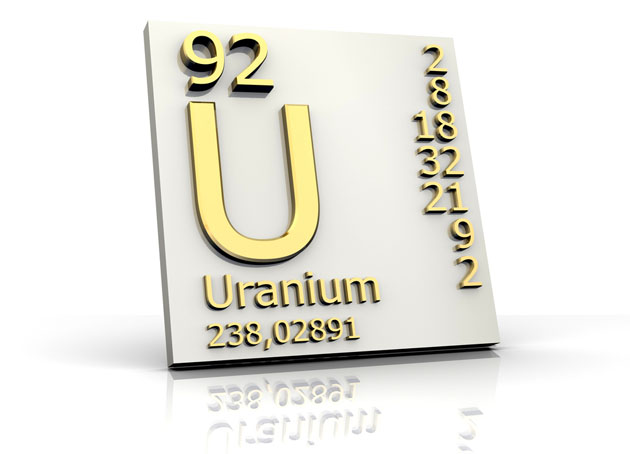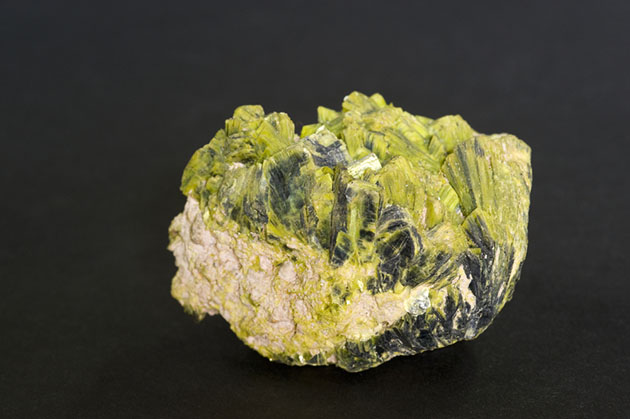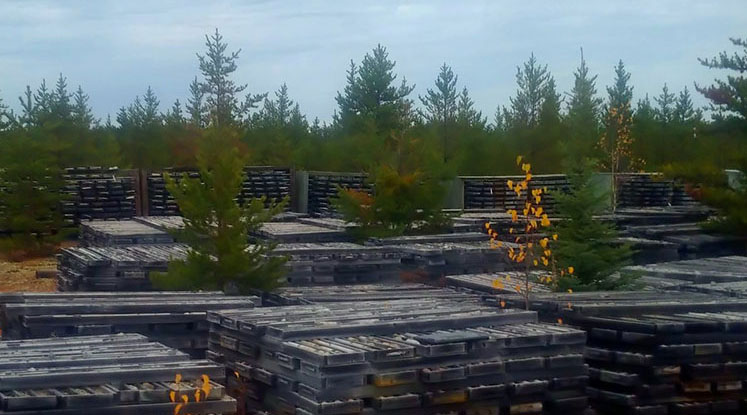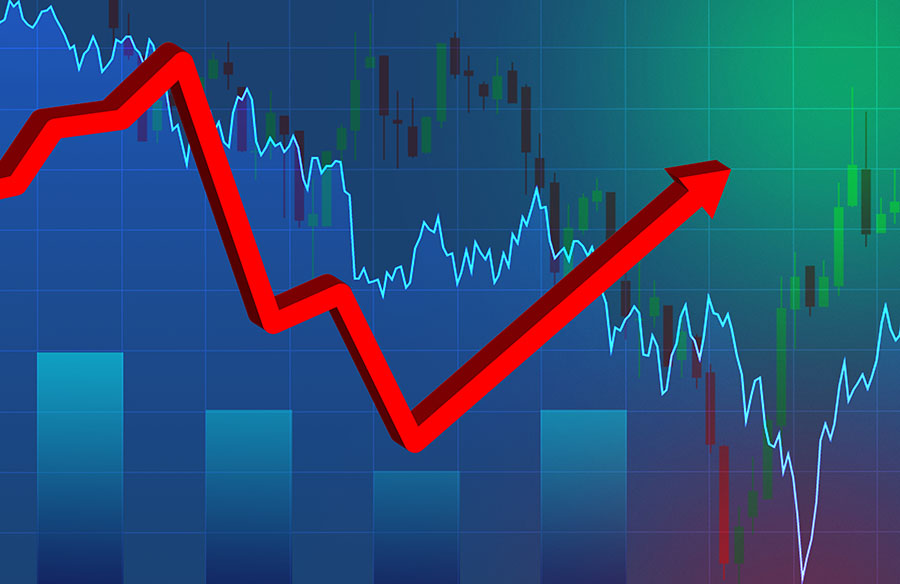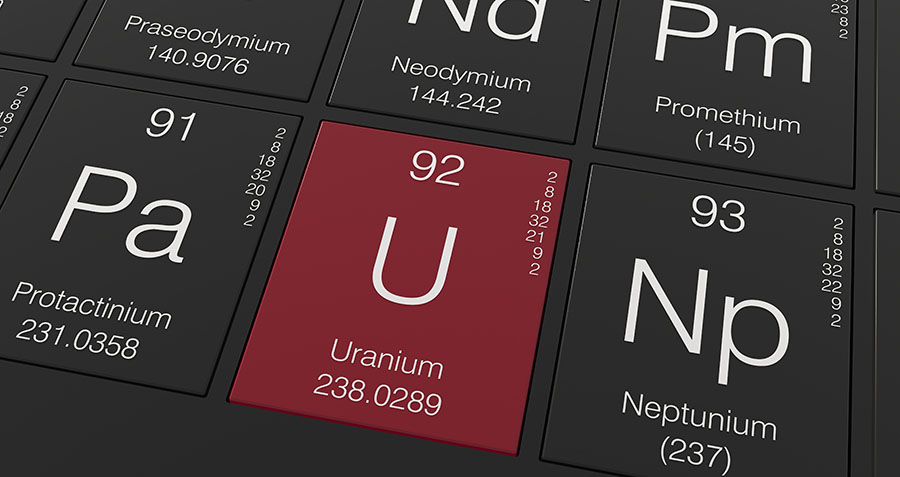TICKERS: CEC, CMMC; CPPMF, MSA, , PCP, RCK; RCKTF; RJIA, ,
Siddharth Rajeev: Bullish on Small-Cap Commodities
Interview
Source: George Mack of The Energy Report (5/26/11)
 Siddharth "Sid" Rajeev isn't a miner. But in his search for value, Sid, head of research for Fundamental Research Corp. in Vancouver, digs deep into the world of small- and micro-cap stocks to find undiscovered gems. In this exclusive interview with The Energy Report, Sid drills down on some relatively unknown resource stocks he has uncovered.
Siddharth "Sid" Rajeev isn't a miner. But in his search for value, Sid, head of research for Fundamental Research Corp. in Vancouver, digs deep into the world of small- and micro-cap stocks to find undiscovered gems. In this exclusive interview with The Energy Report, Sid drills down on some relatively unknown resource stocks he has uncovered.
The Energy Report: Sid, you're an electrical engineer by training. How did you end up the head of research at your boutique investment bank?
Sid Rajeev: I initially worked for an engineering firm for a few years. I developed a strong interest in finance and investment analysis in those years, so I decided to pursue an MBA degree. Soon after I got my degree, I joined Fundamental Research and it's my sixth year here. At Fundamental, we have a team of analysts, including financial analysts and geologists. We cover about 150 companies, three-quarters of which are in the natural resource sector. The rest are from agriculture, technology, aerospace and other industries.
TER: Instead of putting target prices on stocks, your firm uses a fair-value metric. Does that imply perfect pricing, a theoretical point at which there's no upside or downside?
SR: Fair value, basically, is the intrinsic value of a stock on a particular day, which is calculated based on the stock's fundamentals. And you're right, essentially, it's the point at which there's no upside or downside.
TER: When shares reach fair value, do you recommend them as momentum plays?
SR: No, our valuation methodology is always based on fundamentals—we will not give a buy recommendation on a stock if its share price is higher than its intrinsic value. We tend to evaluate or review our valuations on a particular company every three to four months—sooner if some significant news develops.
TER: With a fundamental theory, you recommend taking money off the table when a company achieves fair value and seeking fair value in another company's shares.
SR: Exactly.
TER: What are you trying to achieve for your clientele through your general investment theory?
SR: Our main goal at Fundamental is to bring out those underexposed small- to mid-cap companies that no one really follows—those are the companies most likely to be undervalued. Our geologists look at the technical aspects. They work in conjunction with our financial analysts to come up with the intrinsic value and a recommendation.
TER: Are you generally bullish on commodities right now and, if so, which ones?
SR: Our favorite now is uranium. We've been bullish on uranium for the past couple of years. Yes, the incident in Japan caused uranium to take a huge hit, along with the companies that follow or track uranium, but we believe the fundamentals of uranium are still intact. It's still one of the cheapest and cleanest sources of power out there. Particularly when fossil fuels are at extremely high prices, we need sources like uranium going forward. Having said that, I don't think we are going to see any spike but rather a slow and gradual recovery in uranium prices and, therefore, we believe uranium is very attractive for investors with a longer time horizon (at least 12 months).
TER: Where should investors be deploying capital?
SR: Our three top picks are Western Potash Corp. (TSX.V:WPX), Compliance Energy Corp. (TSX.V:CEC), a coal company, and Strathmore Minerals Corp. (TSX:STM; OTCQX:STHJF), a uranium company.
Western Potash is an advanced-stage exploration company with potash in Saskatchewan. We think it's a good acquisition target.
We picked up Strathmore Minerals when it was at $0.57. It traded as high as $1.60 but, after the disaster in Japan, the stock dropped significantly and now is sitting at about $0.62. We believe uranium companies with quality assets, like Strathmore, should do well going forward.
Compliance Energy recently announced a positive feasibility study, and it should go into production in the next 24–36 months. It has a quality management team, strong cash and investments—especially its significant position in Copper Mountain Mining Corp. (TSX:CUM).
TER: Great. Any others?
SR: Rock Tech Lithium Inc. (TSX.V:RCK; OTCPK:RCKTF; Fkft:RJIA) is a very interesting company under our coverage. Its main focus is on the Georgia Lake lithium project in the Thunder Bay Mining District in Ontario. That project has a historic resource of 9.8 million tons (Mt.) at 1.18% lithium oxide. We like this company particularly because it is expected to complete several milestones in the next 6–12 months. Number one, Rock Tech is expecting to convert its historic resource to an NI 43-101-compliant resource in the next month or so. Second, the company is awaiting metallurgical test results on a 1-ton bulk sample, which will determine the recovery rates for different separation methods and also evaluate the potential to produce battery-quality lithium carbonate. Third, in addition to Georgia Lake, the company also plans to advance its recently acquired projects in Quebec, which are located close to some well-known lithium projects.
The Kapiwak project (James Bay area in Northern Quebec) is located close to a new discovery and the Lacorne project (Val d'Or) is close to a near-term producer (18–24 months). We expect this stock to move closer to our fair value estimate of $0.55 per share if these developments turn out to be positive. The current share price is $0.25.
TER: The main driver here is the growing popularity of electric cars?
SR: Exactly. We think lithium is attractive for use in electronic devices and vehicle batteries because lithium is the lightest metal in the periodic table. Lithium has the highest specific heat of any solid element. Lithium batteries also hold a charge for a long time and could be utilized to store energy from alternate sources, such as wind and solar, as the electricity production from these sources is variable.
TER: What else can we look forward to from Fundamental Research?
SR: Another company that is worth tracking is Mesa Exploration (TSX.V:MSA). It's exploring for lithium, potash and uranium in Utah and Arizona. All the projects are in proven mining districts with accessibility and infrastructure. The company recently released an NI 43-101 technical report for its flagship Green Energy Lithium Project in Utah, where drilling is expected to begin this spring once the permits are received. Mesa also has a joint venture (JV) partnership with Passport Potash Inc. (TSX.V:PPI, OTCQX:PPRTF) on its Holbrook Basin Potash Project.
We recently picked Plains Creek Phosphate Corp. (TSX.V:PCP) and will be initiating coverage on the company shortly. It has an advanced-stage phosphate project in Guinea-Bissau in West Africa. A bankable feasibility study is expected in Q411. The company has already received a production license, and production is expected to commence in 2013. Our recommendation and rating on the company should follow in the next few weeks.
TER: Do you believe a phosphate company can grow due to the success in potash, and that it might be time for phosphate to catch up?
SR: Exactly, phosphate has the same drivers as potash. The main idea behind phosphate and potash is increasing demand for food, increasing population and diet improvement in developing economies. Also, meat consumption in developing countries is expected to significantly increase in the future, which would drive up demand for grains to be used as livestock feed. All this requires fertilizers, and that's where potash and phosphate come in.
TER: Got it. I've enjoyed meeting you very much Sid. Thank you for your time today.
At Fundamental Research Corp., Sid Rajeev heads the research department, which covers over 150 small- and micro-cap companies and 15 exempt market/private issues from a broad array of industries including energy, mining, real estate and technology. He also manages the FRC list of Top Picks, which are the stocks under coverage that he has the highest conviction level about. These picks have historically helped the firm finish strong in various third party analyst performance rankings.
Sid holds a bachelor of technology degree in electronics engineering from Cochin University of Science & Technology and an MBA in finance from the University of British Columbia. He is a CFA Charterholder and has completed studies in exploration and prospecting at the British Columbia Institute of Technology.
Want to read more exclusive Energy Report interviews like this? Sign up for our free e-newsletter, and you'll learn when new articles have been published. To see a list of recent interviews with industry analysts and commentators, visit our Exclusive Interviews page.
DISCLOSURE:
1) George Mack of The Energy Report conducted this interview. He personally and/or his family own shares of the following companies mentioned in this interview: None.
2) The following companies mentioned in the interview are sponsors of The Energy Report or The Gold Report: Strathmore, Copper Mountain, Rock Tech, Mesa Exploration and Passport Potash.
3) Siddharth Rajeev: I personally and/or my family own shares of the following companies mentioned in this interview: None. I personally and/or my family am paid by the following companies mentioned in this interview: None. FRC provides fee-based coverage to the companies mentioned in this article.
Sid Rajeev: I initially worked for an engineering firm for a few years. I developed a strong interest in finance and investment analysis in those years, so I decided to pursue an MBA degree. Soon after I got my degree, I joined Fundamental Research and it's my sixth year here. At Fundamental, we have a team of analysts, including financial analysts and geologists. We cover about 150 companies, three-quarters of which are in the natural resource sector. The rest are from agriculture, technology, aerospace and other industries.
TER: Instead of putting target prices on stocks, your firm uses a fair-value metric. Does that imply perfect pricing, a theoretical point at which there's no upside or downside?
SR: Fair value, basically, is the intrinsic value of a stock on a particular day, which is calculated based on the stock's fundamentals. And you're right, essentially, it's the point at which there's no upside or downside.
TER: When shares reach fair value, do you recommend them as momentum plays?
SR: No, our valuation methodology is always based on fundamentals—we will not give a buy recommendation on a stock if its share price is higher than its intrinsic value. We tend to evaluate or review our valuations on a particular company every three to four months—sooner if some significant news develops.
TER: With a fundamental theory, you recommend taking money off the table when a company achieves fair value and seeking fair value in another company's shares.
SR: Exactly.
TER: What are you trying to achieve for your clientele through your general investment theory?
SR: Our main goal at Fundamental is to bring out those underexposed small- to mid-cap companies that no one really follows—those are the companies most likely to be undervalued. Our geologists look at the technical aspects. They work in conjunction with our financial analysts to come up with the intrinsic value and a recommendation.
TER: Are you generally bullish on commodities right now and, if so, which ones?
SR: Our favorite now is uranium. We've been bullish on uranium for the past couple of years. Yes, the incident in Japan caused uranium to take a huge hit, along with the companies that follow or track uranium, but we believe the fundamentals of uranium are still intact. It's still one of the cheapest and cleanest sources of power out there. Particularly when fossil fuels are at extremely high prices, we need sources like uranium going forward. Having said that, I don't think we are going to see any spike but rather a slow and gradual recovery in uranium prices and, therefore, we believe uranium is very attractive for investors with a longer time horizon (at least 12 months).
TER: Where should investors be deploying capital?
SR: Our three top picks are Western Potash Corp. (TSX.V:WPX), Compliance Energy Corp. (TSX.V:CEC), a coal company, and Strathmore Minerals Corp. (TSX:STM; OTCQX:STHJF), a uranium company.
Western Potash is an advanced-stage exploration company with potash in Saskatchewan. We think it's a good acquisition target.
We picked up Strathmore Minerals when it was at $0.57. It traded as high as $1.60 but, after the disaster in Japan, the stock dropped significantly and now is sitting at about $0.62. We believe uranium companies with quality assets, like Strathmore, should do well going forward.
Compliance Energy recently announced a positive feasibility study, and it should go into production in the next 24–36 months. It has a quality management team, strong cash and investments—especially its significant position in Copper Mountain Mining Corp. (TSX:CUM).
TER: Great. Any others?
SR: Rock Tech Lithium Inc. (TSX.V:RCK; OTCPK:RCKTF; Fkft:RJIA) is a very interesting company under our coverage. Its main focus is on the Georgia Lake lithium project in the Thunder Bay Mining District in Ontario. That project has a historic resource of 9.8 million tons (Mt.) at 1.18% lithium oxide. We like this company particularly because it is expected to complete several milestones in the next 6–12 months. Number one, Rock Tech is expecting to convert its historic resource to an NI 43-101-compliant resource in the next month or so. Second, the company is awaiting metallurgical test results on a 1-ton bulk sample, which will determine the recovery rates for different separation methods and also evaluate the potential to produce battery-quality lithium carbonate. Third, in addition to Georgia Lake, the company also plans to advance its recently acquired projects in Quebec, which are located close to some well-known lithium projects.
The Kapiwak project (James Bay area in Northern Quebec) is located close to a new discovery and the Lacorne project (Val d'Or) is close to a near-term producer (18–24 months). We expect this stock to move closer to our fair value estimate of $0.55 per share if these developments turn out to be positive. The current share price is $0.25.
TER: The main driver here is the growing popularity of electric cars?
SR: Exactly. We think lithium is attractive for use in electronic devices and vehicle batteries because lithium is the lightest metal in the periodic table. Lithium has the highest specific heat of any solid element. Lithium batteries also hold a charge for a long time and could be utilized to store energy from alternate sources, such as wind and solar, as the electricity production from these sources is variable.
TER: What else can we look forward to from Fundamental Research?
SR: Another company that is worth tracking is Mesa Exploration (TSX.V:MSA). It's exploring for lithium, potash and uranium in Utah and Arizona. All the projects are in proven mining districts with accessibility and infrastructure. The company recently released an NI 43-101 technical report for its flagship Green Energy Lithium Project in Utah, where drilling is expected to begin this spring once the permits are received. Mesa also has a joint venture (JV) partnership with Passport Potash Inc. (TSX.V:PPI, OTCQX:PPRTF) on its Holbrook Basin Potash Project.
We recently picked Plains Creek Phosphate Corp. (TSX.V:PCP) and will be initiating coverage on the company shortly. It has an advanced-stage phosphate project in Guinea-Bissau in West Africa. A bankable feasibility study is expected in Q411. The company has already received a production license, and production is expected to commence in 2013. Our recommendation and rating on the company should follow in the next few weeks.
TER: Do you believe a phosphate company can grow due to the success in potash, and that it might be time for phosphate to catch up?
SR: Exactly, phosphate has the same drivers as potash. The main idea behind phosphate and potash is increasing demand for food, increasing population and diet improvement in developing economies. Also, meat consumption in developing countries is expected to significantly increase in the future, which would drive up demand for grains to be used as livestock feed. All this requires fertilizers, and that's where potash and phosphate come in.
TER: Got it. I've enjoyed meeting you very much Sid. Thank you for your time today.
At Fundamental Research Corp., Sid Rajeev heads the research department, which covers over 150 small- and micro-cap companies and 15 exempt market/private issues from a broad array of industries including energy, mining, real estate and technology. He also manages the FRC list of Top Picks, which are the stocks under coverage that he has the highest conviction level about. These picks have historically helped the firm finish strong in various third party analyst performance rankings.
Sid holds a bachelor of technology degree in electronics engineering from Cochin University of Science & Technology and an MBA in finance from the University of British Columbia. He is a CFA Charterholder and has completed studies in exploration and prospecting at the British Columbia Institute of Technology.
Want to read more exclusive Energy Report interviews like this? Sign up for our free e-newsletter, and you'll learn when new articles have been published. To see a list of recent interviews with industry analysts and commentators, visit our Exclusive Interviews page.
DISCLOSURE:
1) George Mack of The Energy Report conducted this interview. He personally and/or his family own shares of the following companies mentioned in this interview: None.
2) The following companies mentioned in the interview are sponsors of The Energy Report or The Gold Report: Strathmore, Copper Mountain, Rock Tech, Mesa Exploration and Passport Potash.
3) Siddharth Rajeev: I personally and/or my family own shares of the following companies mentioned in this interview: None. I personally and/or my family am paid by the following companies mentioned in this interview: None. FRC provides fee-based coverage to the companies mentioned in this article.



